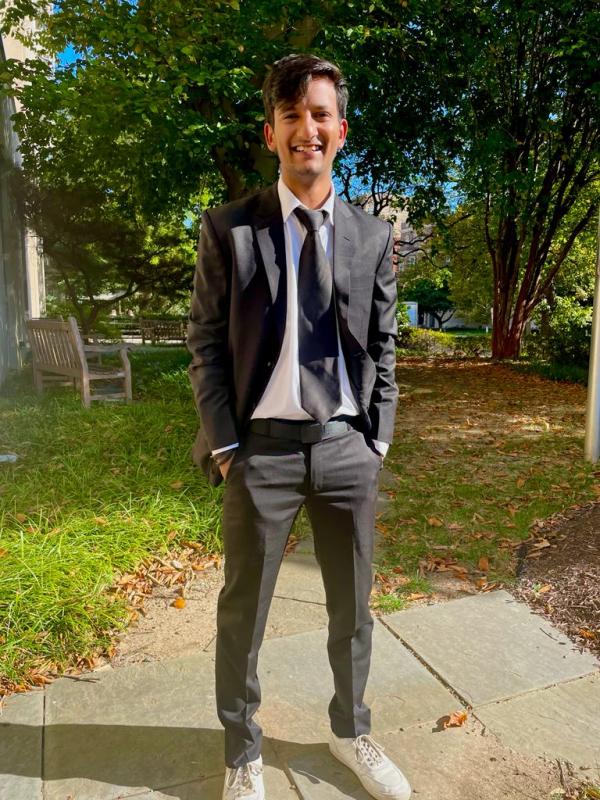
Throughout my internship, I found the paramount significance of cybersecurity in protecting government assets and public safety to be particularly compelling.
Name: Baibhav Anand
Major: PM - Cyber Security
Employer: The Port Authority New York New Jersey
Location: New York, NY
How did you find the internship/co-op? What was the interview process like? I discovered the Port Authority's cybersecurity internship on LinkedIn and engaged in the interview process. I emphasized experience and interest in domains like endpoint security, network monitoring, and threat analysis through coursework, internships, and projects. Technical interviews centered on my resume and my cybersecurity knowledge gained so far, encompassing domains like threat detection, incident response, and malware analysis. Additionally, there was a coding component to assess problem-solving skills.
What have been the most interesting aspects of your internship? Throughout my internship, I found the paramount significance of cybersecurity in protecting government assets and public safety to be particularly compelling. This was exemplified by organizations like the Port Authority of New York and New Jersey, where I saw firsthand how cybersecurity intricately contributes to creating a secure environment for citizens. This experience allowed me to practically apply and enhance the skills I've acquired, gaining insights into dynamic cyber threats and reinforcing the importance of staying proactive in the field.
What campus activities or courses do you think helped you, or would have helped you, with this internship? The blend of courses offered by the college, including security tools, network security, hacking in C, and Digital Forensic Incident Response, was instrumental in preparing me for this internship. These courses provided a solid foundation in crucial cybersecurity areas, equipping me with practical skills and knowledge that directly translated to tasks I encountered during the internship.
How would you describe the company culture? What was the most helpful thing your supervisor did to make you feel comfortable at the organization? Despite the challenges posed by legal constraints on sharing information about live federal projects, my supervisors ensured my comfort by facilitating valuable learning experiences. They encouraged me to shadow them, provided insights, and allowed me to apply my knowledge to similar non-government projects. This approach allowed me to gain practical skills and contribute effectively despite limitations, fostering a positive and productive learning environment.
Did the internship provide a solid education in professional ethics? If so, how? Certainly, the internship subtly instilled professional ethics through navigating legal constraints, confidentiality, and observing my supervisors' integrity in challenging scenarios, enhancing my ethical awareness in cybersecurity and beyond.
Was there a formal program for all interns at the company? Was peer support available throughout the internship? Yes, the company had a structured program for all interns. This program included orientation sessions, training workshops, networking events, and mentorship opportunities. It aimed to provide a comprehensive understanding of the organization, its culture, and various departments while fostering collaboration among interns.
How have your career or academic goals changed as a result of this internship experience? Applying the knowledge gained from college courses directly in practical settings has given me a deeper understanding of the subject. The relevance of the courses became more evident as I saw their direct applications in real-world scenarios. This exposure has solidified my interest in cybersecurity and motivated me to further specialize in this field, both academically and professionally.
What advice would you give other UMD engineering students seeking an internship or co-op position? For UMD engineering students seeking internships or co-ops, proactively use available resources. Network with peers, professors, and alumni for insights. Tailor your resume, participate in fairs and workshops, showcase on LinkedIn, and align your experiences with company needs in interviews. Embrace rejections as learning opportunities guiding you to the right fit.
Top